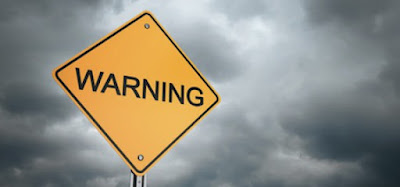For those of you who don't know what a trigger warning is,
it's a statement at the beginning of an article (or movie or book or college
course) that warns vulnerable consumers of content within it that may cause
them distress. That vulnerable consumer
can then choose whether or not to proceed.
Over the last few weeks I've heard a lot of people making fun of
"trigger warnings" and ridicule those who advocate for them. People scoff saying that life is not a
"safe space" and that the world will always present triggers that
can't be avoided, so people should just suck it up and deal with it. But before you dismiss trigger warnings as
millennial snowflake garbage, I want you to hear a part of my story. I can't speak for many of the kinds of
trigger warnings people advocate for, but I can speak of one from very personal
experience, and I am actually going to preface it with a trigger warning:
TRIGGER WARNING: The following story has to do with
self-injury. If you are feeling
vulnerable, you may not want to proceed.
If you need immediate help, you can call the suicide prevention hotline
at 1-800-273-8255, or you can text 741741 to be connected to a crisis
counselor. Even if you're not suicidal,
they can sometimes help talk you through urges to hurt yourself.
From about age 15 to age 25, I struggled with
self-injury. If you don't know what that
means, the Mayo Clinic describes it this way:
"Nonsuicidal self-injury, often simply called self-injury, is the
act of deliberately harming the surface of your own body, such as cutting or
burning yourself. It's typically not meant as a suicide attempt. Rather, this
type of self-injury is an unhealthy way to cope with emotional pain, intense
anger and frustration."
From personal experience I can tell you that self-injury
(specifically cutting in my case) is an addictive behavior, and because it is
so visceral, seeing images of other people's cuts, self-inflicted or otherwise,
often triggered a deep emotional response in me. I'll tell you a story.
I had been in remission from self-injury for several
months. One day I was having a hard day,
but I was keeping things under control, when suddenly one of my coworkers
accidentally cut his finger. It was a
deep cut, and it took a lot more time and effort than it should have to stop
the bleeding. I was deeply triggered,
and the combination of an already stressful day and the intense visual stimulus
put me over the edge, causing a relapse that lasted several weeks. I tell you this story so you'll understand
the power of visceral visual stimuli.
Another time I was watching a movie and suddenly one of the
main characters grabbed another character's arm and forced her sleeve up,
exposing dozens of self-inflicted cuts.
Again, it affected me deeply. If
there had been a trigger warning at the beginning of the movie warning me of
the self-injury-related content, I could have A) mentally prepared myself for
the scene, or B) chosen not to watch the movie at all. Either option would have resulted in fewer
scars that remain on my body to this day.
I'm not saying that everyone should be legally required to
warn of every type of potentially triggering content in every situation they're
in. I'm actually an advocate of freedom
of speech and freedom of expression. What
I am saying is that I am so grateful when people do use trigger warnings. I have no problem with a college professor
using a text that has intense content in it.
I am grateful when they warn their students of said content and let them
make an informed choice as to how to proceed.
I don't mind at all when authors choose to write about sensitive
subjects. I'm grateful when they warn us
that they're going to do so. I'm ok with
people choosing to portray graphic content in movies and television. I have personally benefitted from the times
when they've prefaced the content with a trigger warning.
I understand that it's not possible (or even desirable) to
sanitize the world, and that people will always come across triggering
situations that can't be anticipated.
But why wouldn't we want to offer support in the places where we can
anticipate the trigger? Why wouldn't we
want to prevent suffering when we can?
Why do we ridicule people who are hanging on by the skin of their teeth
and who are begging for our help?
I hope the next time you want to make fun of people asking
for help, you'll remember my story,
remember the scars I bear. I am
not ashamed of them. I want to use them
to make the world a more compassionate place.

